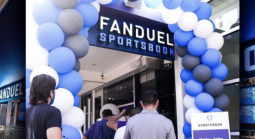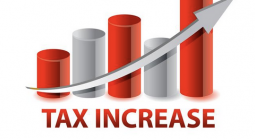Online Casino Gambling in New York Not a Top Priority in 2024 as Addiction Numbers Explode
New York state leadership does not have iGaming as a top priority for this session, or if they do, they aren’t saying that publicly, writes Jack Caroll of City & State New York.
New York State has allowed for mobile sports betting over the last two years with some restrictions (no betting on in-state schools like Syracuse for one). Currently iGaming, including live dealer online casinos, are only available from sites that are licensed internationally, not by the state.
New York leads among states offering sports gambling. Since its launch, a whopping $40 billion has been bet.
Carroll explains why the addition of iGaming would be so lucrative.
One reason behind the push for iGaming this year is that it's an extremely profitable and a steady revenue center for gambling companies. Sports betting, in comparison, is a relatively low-margin business at about 8% of total wagers nationwide in 2020. And it’s not as consistent. For instance, if lots of bettors wagered on the Kansas City Chiefs to win the Super Bowl and very few people bet on the San Francisco 49ers, the sportsbook might’ve lost money because the losing bets wouldn’t have covered paying the winning bets.
But iGaming has a bigger potential customer base beyond just sports fans and the games it offers have a higher “hold percentage” – the industry’s term for how much a casino wins on a certain game – than sports gambling. A University of Nevada, Las Vegas study over 20 years of table games in Nevada found an average hold percentage of 12.69% to 18.90% across blackjack, craps, roulette and baccarat. Some industry leaders have estimated the value of an iGaming customer to be seven times the value of a sports betting customer.
Despite this, only seven states have thus far legalized online casino gaming. State Sen. Joseph Addabbo – the chair of the Senate Racing, Gaming and Wagering Committee - has introduced a bill that would allow for Web casino games like roulette, blackjack and slots. The activity would be taxed at 30.5%.
When asked why so few states have legalized iGaming, Addabbo said gambling addiction is a major concern. “I think it’s the apprehension of the widespread addiction issue,” he told City & State.
In Florida, where the Seminoles entered into an exclusive compact with the state to offer mobile sports betting, calls to the state gambling helpline have more than doubled.
"The volume has just exponentially more than doubled overnight," said Jennifer Kruse, executive director of the Florida Council on Compulsive Gambling, in an interview with ABC News. "We try to do our best to make sure that every call doesn't go unanswered."
She says the concern isn't just how many people are calling but who is calling.
"Definitely younger men," Kruse said. "That's concerning from a gambling perspective. It's not just younger men that are gambling, but they are experiencing problems in their life to the point that they are now reaching out for help."
Ads for Hard Rock Bet and its catchy jingle "Hard Rock Bet Legal in Florida" and "No More Betting in Your Head" had been running seemingly within every couple of commercial breaks throughout the state. A commercial promoting the Seminole Hard Rock's expanded offerings of craps and other casino games that began airing earlier in the month had made mention of the casino's new retail sportsbook. That reference has since disappeared in more recent airings for reasons unknown.
“There’s a lot of publicity about the revenue, but the flip side of that revenue is the loss right? That money that’s coming in is human loss and that comes in the form of somebody not being able to pay their mortgage or not being able to put food on their table or draining a savings account," Brandy Richards of the New York Council on Problem Gambling, Told City & State.
Evan Ozmat, a Ph.D. student in psychology at the University at Albany, revealed to Time Magazine in December that a recently launched program for counseling undergraduates about HIV and substance abuse has instead yielded stunning outcomes.
“Since the beginning of the project three years ago, students have brought up, unprompted, gambling,” Ozmat says. “We started asking about it in every appointment and everyone has something to say. It’s everywhere.”
The majority of the gambling takes place on mobile phones, Ozmat says, largely—although not exclusively—on sports betting apps.
”It almost feels like binge drinking or methamphetamines, where they are going on benders,” he says. “They’ll make bets and bets and bets and bets and then wonder, ‘how the hell did I get here?’”
In New Jersey, which legalized online casinos to compliment sports betting, the crisis mirrors that of states like Florida.
“There’s a lot of kids that are gambling,” said Felicia Grondin, executive director of the Council on Compulsive Gambling of New Jersey, in an interview with The Guardian.
“Calls to gambling helplines in most states in America are up, by sheer numbers,” Timothy Fong, co-director of the gambling studies program at UCLA, revealed. “More and more younger clients” – aged 25 and under – are seeking treatment."
- Alejandro Botticelli, Gambling911.com















